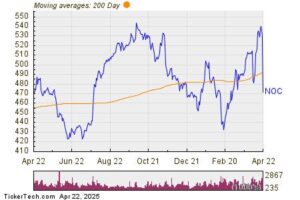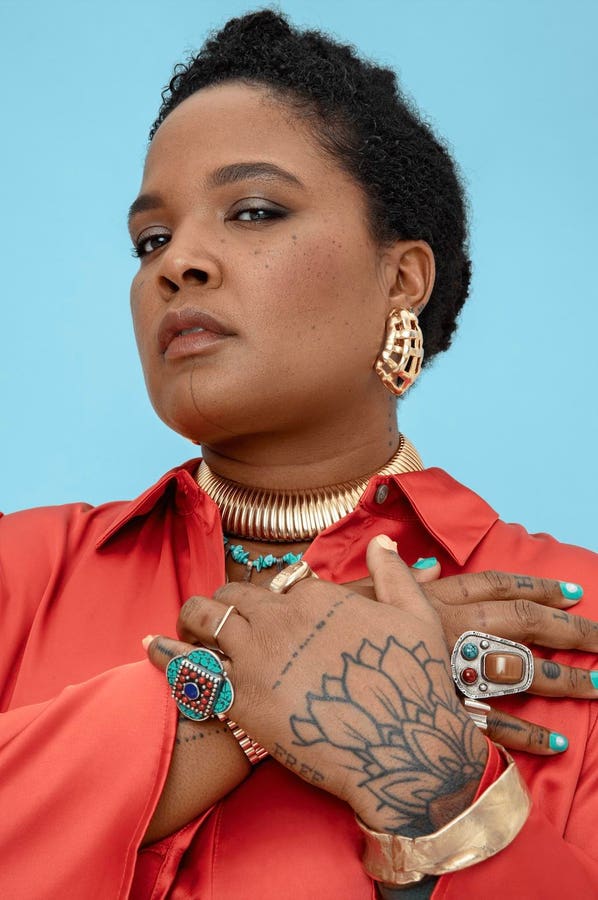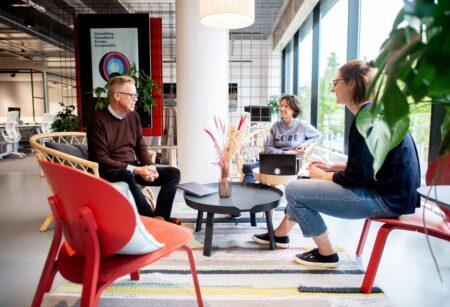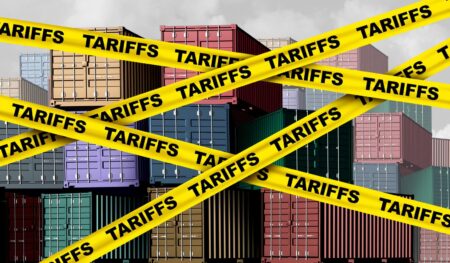Last year, Compass Diversified acquired a majority stake in the feminine care company, The Honey Pot, for $380 million dollars. The Honey Pot’s irreverent marketing spoke to an audience who didn’t see themselves in the legacy brands. You know, the ones still advertising menstrual pads using blue liquid. It’s a pretty impressive price tag especially during a down-market for start-up exits. It turns out that $380 million dollar offer wasn’t even the highest bid. As cofounder and CEO Beatrice Dixon tells it, she walked away from a $450 million offer. Why? “I would have been selling my soul,” she says.
For most entrepreneurs—but especially Dixon—the start-up journey has been personal. The idea for the Honey Pot came to her in a dream in 2014. (More on that soon.) Two years later, her first product was on shelves at Target, a move that changed her company’s trajectory. But as Dixon points out: This isn’t a DEI success story. “We got into Target the old fashioned way,” she says. And she has a lot to say about the retailer’s recent decision to roll back its minority initiatives.
Here, Dixon talks about pitching investors on feminine hygiene, the Honey Pot’s big acquisition, and the surprising thing she did with some of that cash.
MICKEY RAPKIN: The Honey Pot is a feminine care product company with one of the more surprising origin stories. You were struggling with bacterial vaginosis when a visitor came to you in a dream with a solution. Would you tell us about that night?
BEATRICE DIXON: It was the morning, actually. That visitor was my grandmother who passed away when my mom was a child. I had been dealing with [vaginosis] for almost a year. It would go away and come back every single month. I basically lived on antibiotics, which nobody should. I was going to Google for remedies, which is not really the vibe, right? Not when your vagina is broken.
RAPKIN: I’ll take your word for it.
DIXON: (smiling) Yeah, take my word for it, for sure. She came that morning [in a dream], and she told me that she’d been walking with me, and seeing me struggle, and she knew what to do. The funny thing is, a lot of the remedies that I was doing individually, I needed to put all of them together to make myself a potion. I worked at Whole Foods, I bought all the stuff, I didn’t know what it was going to be. It ended up being a wash. I started using it and within days the odor went away. Then days after that the discharge went away. It was a miracle.
ERIC RYAN: That’s one of the more incredible founding stories.
DIXON: Thank you.
A DIY Clinical Trial
RAPKIN: You were a buyer at Whole Foods—
DIXON: At the store level.
RAPKIN: I heard you’d follow customers to their cars to tell them about your product. How did you get comfortable talking to strangers about vaginal discharge in a parking lot?
DIXON: Anytime somebody had a vagina issue, my team would send them to me. I would help them with the supplements, the suppositories, then I would walk to the register and I’d be, like, ‘Hey, I’m going to walk you to your car and help you with your groceries.’ I would say, ‘I have this product, it worked for me. I don’t want you to buy it. All I want you to do is just try it.’ It was like a ‘hood clinical trial.
RAPKIN: Eric, did you ever follow anyone to their car when you were developing Method Soap?
RYAN: I don’t know any consumer product story that doesn’t start with a trunk of a car playing a part.
RAPKIN: Beatrice, so much of the packaging and marketing in feminine care had been clinical. I don’t have a vagina, but I’m pretty sure menstrual blood isn’t blue.
DIXON: It’s not.
RAPKIN: These legacy brands were struggling to connect with Gen Z customers. But with Honey Pot, you took a really irreverent approach. What were the legacy brands missing?
DIXON: I think they were lacking in humanity, to be honest. I think when you treat people like people you have real conversations. You call body parts what they are, right? Up until then, vaginal wellness—or what others call Fem-Hy—had been very much about covering odor. Menstrual had been very much focused on just collecting blood. It wasn’t necessarily focused on the materials that the vulva was gonna sit on, or what the tampon that’s gonna go inside was made of…
RYAN: You and I came in really changing the conversation. You were serving your core consumers across all of their needs versus just trying to sell a product.
DIXON: Yeah. And [that customer] will trust you because if you can wash their counter—or in our instance, if we can wash their vagina—why can’t we protect it with a pad, you know?
RYAN: Absolutely.
RAPKIN: Honey Pot eventually gets into Target, which was a big turning point. But many entrepreneurs don’t realize how hard it is to stay on the shelf and market those products at scale. Will you talk us through that challenge?
DIXON: Getting into Target—or any retailer, for that matter—is the easy part, you know? It’s really staying there that’s the hardest. Man, we got it in Target? Whew, that was rough. First of all, none of us had any clue about what operations meant. We had no idea what logistics and supply chain and 3PLs—
RYAN: And ERP systems. What do you mean we’re gonna get fined if the truck is ten minutes late? What do you mean you’re gonna charge me if you discontinue me? (laughing) It’s like breaking up with somebody and saying, I’m gonna give you a bill at the end of it.
DIXON: (laughing) You know, 90 days later, when you finally get paid, you made a million dollars but really you walked away with like a hundred thousand or some wild number like that. It’s crazy. Me and Sy [Gray, my cofounder], we had raised $700,000, which y’all know ain’t nothing. Half of that went to branding, half of that bought product—maybe a little more than half. We were literally raising money to pay bills. Nobody wants to be living in that place. It was just a really hard time. I didn’t quit my job until maybe six or seven months into us being in Target.
RAPKIN: How did you turn it around?
DIXON: You just have to learn it. You really have to crawl through the mud. Then we went out and raised some more money.
Struggling to Raise Capital
RAPKIN: You’re one of the first 40 women of color to raise more than a million dollars in venture capital. But the deck was stacked against you. It’s notoriously difficult for Black women to raise money. And you’re pitching mostly men on a vaginal care product. What were those early meetings like? Did you struggle to get in the door?
DIXON: There was a million no’s before there was finally a yes—from Richelieu Dennis and his family at the New Voices Fund. Richelieu had just sold Sundial to Unilever. We kind of caught them at the right time. But prior to that, we had been out in the market trying to raise for six months and we just weren’t having much success. Raising money is hard whoever you are. We had been out in the market for a while and we’d talked to VMG, Velocity Made Good. The first time that we talked to them, it wasn’t really the right time. VMG is private equity. Their rules are a little bit more tight, you know? And we weren’t quite at the $10 million mark. We were almost there. Then we got a commercial with Target that went extremely viral. They called back, like, “Hey, remember what we said that we weren’t [interested]? Well, actually, that’s not what we meant.” It worked out. We just went through our last round, which is where we went through a majority acquisition with Compass Diversified.
RAPKIN: Yeah, you did.
DIXON: Thank you. And that was a process. Compass is wonderful, we love them. Compass is great. But getting to the place where you can actually find a partner is a process.
RYAN: It’s a terrible, terrible dance.
That $380 Million Deal
RAPKIN: Compass took a majority stake in Honey Pot in 2024 for $380 million dollars. Is it true you turned down higher offers?
DIXON: Yeah, our highest was like $450 [million].
RAPKIN: Was it hard to turn down?
DIXON: No, because I would have been selling my soul. It’s just money. And I’m fine with what I walked away with. I still had to reinvest fifty percent of the equity that I had, you know? I made a major investment into this new partner because that’s how these things work. The hard part was tapping into your intuition. We got to the end and there was three offers.
RAPKIN: What made this one feel like the right match?
DIXON: Because they believed in who we were. They understood that in order for us to get to the next phase—to find Honey Pot a home—we would need to be the ones to do that. They gave us the ability to keep our team. They believed in our strategy moving forward. Once you get over that $100 million, $120 million mark, you’ve got a new business. It’s not operating the way that you operated it before. But nobody’s going to do that better than you are, right? Having partners that understand that is essential. It’s a red flag if they’re saying something different.
RYAN: There’s not many of us who took on these multinationals—which are not only some of the world’s biggest companies, but they’re the world’s first global companies. You also took on a category where, to your point, you had to change the conversation. And you had to do it in a space that was taboo to even talk about. I just have such huge regard for what you’ve done.
DIXON: Thank you.
RAPKIN: We should talk about this moment we’re living in. Target recently cut many of its corporate commitments to DEI which sparked this nationwide backlash. Was this change particularly hard for you to hear? Where would Honey Pot be without Target’s initial support? What’s the way forward?
DIXON: It’s interesting to me that when people think about DEI, they think about black people. It’s not just about black people, right? We got into Target the old fashioned way. Actually, most of my friends that are in Target did not go through a DE&I programming. So, that’s a myth that first needs to be busted. That doesn’t mean that we didn’t have the Women-Owned Certification and Minority Certification. We’d be silly if we didn’t. By using those programs, you don’t have to pay those slotting fees that you typically would, right? We benefited in that way.
RYAN: It’s so hyper-competitive. When you’re in consumer products, you get to see everybody else’s sales results. You can look at it daily if you want. Your competition is quickly gonna be able to try to push back on the buyer to explain why you don’t deserve the [shelf] space you have. It’s fully transparent.
DIXON: It’s wild.
RYAN: So, to your point, you have to earn your ability to get in. And you gotta earn the ability to compete day in and day out.
DIXON: Now people want to boycott Target. And rightfully so. I mean, it’s their choice to do whatever they want to do, right? [But] for a decision that Target made, it now affects the other brands that are on the shelf in a negative way. When you’re a new brand getting into Target, it’s really hard. You’re just trying to scratch your minimum. It might be a unit per store per week or something. But it’s real hard to get there if people aren’t going into the store. And a lot of the BIPOC brands—especially black-owned brands—are selling products specifically to black people. There’s all kinds of really dope products that are specifically for the people who are not shopping. And then, to add insult to injury, this announcement came out right at the top of Black History Month. I’m grateful to say that we will be fine. Because we have a very strong omnichannel presence in retail. We’re a medium-sized brand. We’re not a small brand anymore. We’re OK. It’s just hard.
“There Is No Plan B”
RAPKIN: We don’t often talk about how growing a company takes a toll on its founder. What was your journey like? Did you have to remind yourself to take care of yourself?
DIXON: For so many years, I didn’t take care of myself. It’s not until maybe the past four years that I’ve really invested in my health. When we first got started, my mental health wasn’t the best. I was stressed, I was in a marriage that did not serve me. We were rubbing wooden nickels together. I was working full time. We were raising money. The desperation that you feel when you have a thing that you know is the thing. I don’t mean to make this comparison. But it’s an honest one. It’s like you’re staring down the barrel of a gun and you can see what’s at the end. But you can’t get to it. You know that you’ve got to be on the shelf on X day. Yet you’re struggling to raise $20,000 or $200,000 or whatever the goal is for the week or the month—just so that you can pay this this contract manufacturer, so that they can make your damn washes.
RYAN: Entrepreneurs care so deeply. It’s not a job. You can’t just go find another job.
DIXON: (nodding) There is no plan B.
RAPKIN: I wonder if it weighed even more personally on you because this vision came from your grandmother? Or maybe those two ideas are separate?
DIXON: No, they weren’t separate. I definitely spent a lot of time talking to her to get her to help me. Talking to all of my ancestors, for that matter. But you know, it’s supposed to be hard. It’s not supposed to be easy.
RAPKIN: Eric, do you have a memory from one of your hardest, earliest days? One that you still think about?
RYAN: When we were launching Method, in the Spring of ’01, we were down to our last few dollars. I was amazed at how far we got that car to go on fumes. I had a former client—we were all huddled around the speakerphone, this was before Zoom. And he told us he was going to write a check, a couple hundred thousand dollars of Angel money. Bob Bogner, thank you forever. We were silently high-fiving each and trying to play it cool. But that moment saved me. That allowed us to finally get our Series A done—to bridge us to it. That’s why you realize they’re called Angels. Because they essentially save you from business-death.
DIXON: Yeah, literally.
RYAN: I’ve always heard this phrase, “Money makes you more of who you are.” So, if you’re an asshole before, money makes you a bigger asshole. If you were a generous person before, you become more generous. You’ve had the opportunity to have some liquidity. What has the money allowed you to become more of?
DIXON: Definitely more generous. I’ve been able to help my family, I’ve been able to help friends with things. I have a friend that’s going through a really hard illness, so I’ve been able to help her. I’ve been able to buy my mom a house, I’ve been able to pay off my brother’s house. I’ve been able to invest in that house in Costa Rica that I’ve wanted for a very long time. I was able to pay off my ex-husband and be done with that, you know? It sounds awful. But, you know, he’s black history now. I don’t need to think about him anymore. You know, there’s a comfort in knowing that you’re OK. Like, if shit hit the fan, you’d be all right. That’s what matters to me.
The conversation has been edited and condensed for clarity. If you liked this story about how the Honey Pot was acquired for $380 million dollars, click here for more episodes of Cereal Entrepreneur.
Read the full article here











